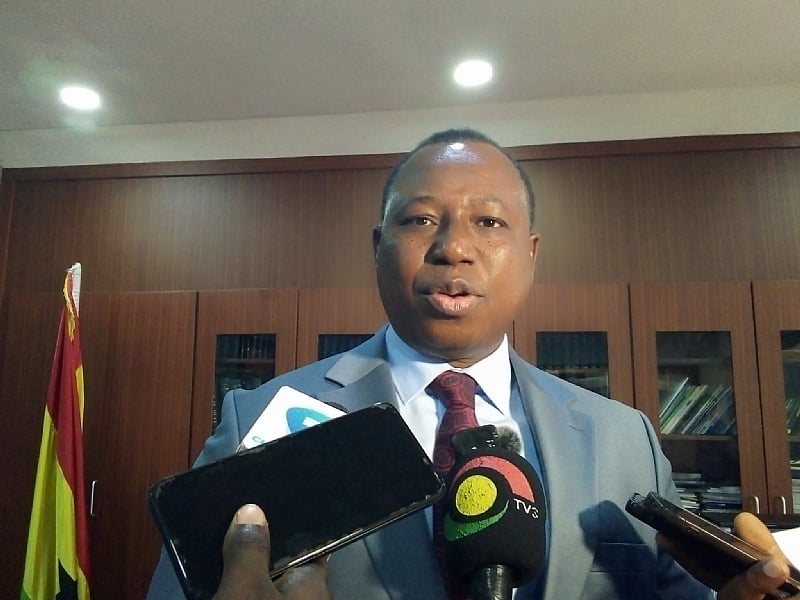The arrest and subsequent detention of Bernard Antwi Boasiako, also known as Chairman Wontumi, by the Economic and Organised Crime Office (EOCO) has been deemed lawful by the Commissioner of the Commission on Human Rights and Administrative Justice (CHRAJ), Joseph Whittal. Wontumi, the Ashanti Regional Chairman of the New Patriotic Party (NPP), was held by EOCO from Tuesday, May 27, 2025, to Monday, June 2, 2025, before being released after fulfilling the conditions of his GH¢50 million bail with two sureties. While formal charges are yet to be filed by EOCO, the Attorney-General’s Office has confirmed that Wontumi is under investigation for a range of offences, including fraud, causing financial loss to the state, and money laundering. Whittal asserts that EOCO operated within its legal mandate and did not breach Wontumi’s rights during the arrest and detention.
Whittal clarified his position by stating that while he wasn’t personally present during the arrest, his understanding based on media reports indicates that EOCO followed proper administrative procedures. He emphasized that anyone is susceptible to arrest at any time and that EOCO possesses the same powers as the police. The Commissioner further pointed out that bail was granted within the stipulated 48-hour period, and any delay in Wontumi’s release was attributed to the nature of the bail conditions, not the actions of EOCO.
Addressing public concerns regarding the substantial GH¢50 million bail amount, Whittal explained that the amount is likely commensurate with the severity of the potential charges against Wontumi. He noted that until the specific charges are formally presented, it is difficult to definitively assess the appropriateness of the bail amount. However, he expressed confidence that EOCO acted judiciously in setting the bail, especially given Wontumi’s lawyer’s reported satisfaction with EOCO’s handling of the matter. He reiterated that the bail amount is often correlated to the gravity of the offences and is intended to ensure the accused’s appearance in court.
Whittal also commented on the public’s tendency to gather at security agencies during high-profile arrests. He discouraged this practice, urging citizens to allow due process to unfold without interference. He expressed concern that such gatherings could potentially disrupt the investigative process and even pose a security risk. He referenced the closure of the CHRAJ commission’s gate during Wontumi’s arrest as a precautionary measure taken in response to the large crowds.
The Commissioner’s statements underscore the importance of upholding the rule of law and allowing investigative bodies to carry out their duties without undue pressure or interference. While public interest in such cases is understandable, it is crucial to respect the legal process and avoid actions that could potentially obstruct justice. The emphasis on the proportionality of the bail amount to the alleged offences signifies the principle of fairness within the justice system.
In conclusion, the CHRAJ Commissioner’s assessment of EOCO’s actions in the arrest and detention of Chairman Wontumi emphasizes the importance of adhering to due process within the legal framework. The setting of the bail amount, though substantial, is justified as a reflection of the potential gravity of the alleged offences. The Commissioner’s call for public restraint during such sensitive investigations highlights the need to balance public interest with the smooth functioning of the justice system. The case serves as a reminder that everyone, regardless of their political standing, is subject to the law and that the legal process must be allowed to run its course without undue external pressure.


